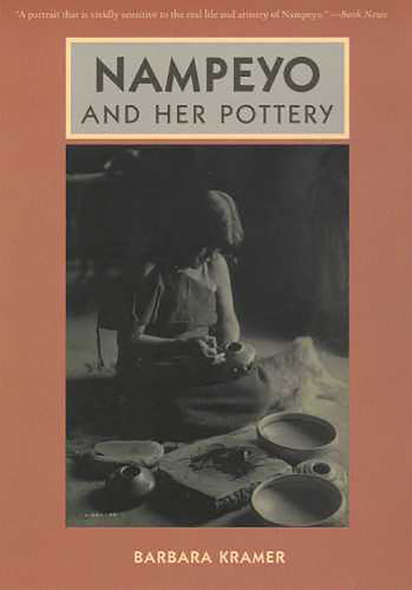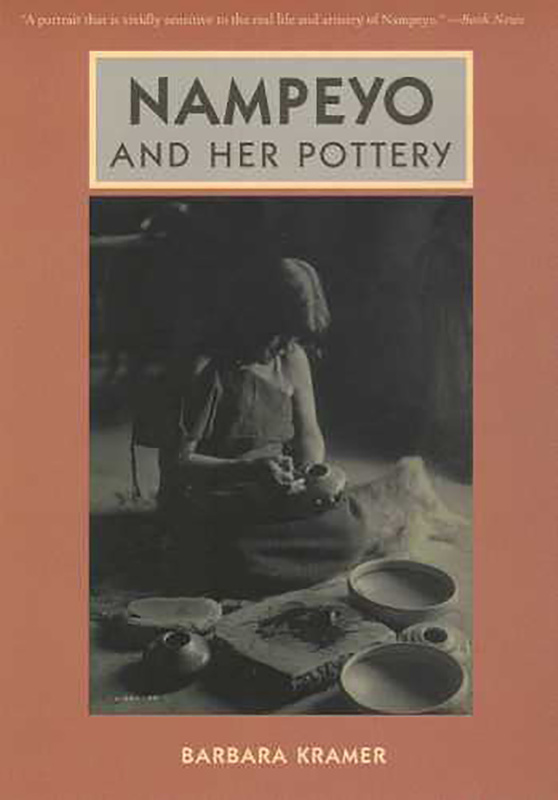At the beginning of the twentieth century, Hopi-Tewa potter Nampeyo revitalized Hopi pottery by creating a contemporary style inspired by prehistoric ceramics. Nampeyo (ca. 1860-1942) made clay pots at a time when her people had begun using manufactured vessels, and her skill helped convert pottery-making from a utilitarian process to an art form. The only potter known by name from that era, her work was unsigned and widely collected. Travel brochures on the Southwest featured her work, and in 1905 and 1907 she was a potter in residence at Grand Canyon National Park's Hopi House. This first biography of the influential artist is a meticulously researched account of Nampeyo's life and times. Barbara Kramer draws on historical documents and comments by family members not only to reconstruct Nampeyo's life but also to create a composite description of her pottery-making process, from gathering clay through coiling, painting, and firing. The book also depicts changes brought about on the Hopi reservation by outsiders and the response of American society to Native American arts.
Barbara Kramer is an independent researcher who has written extensively about the arts. She lives in Bermuda Dunes, California.





